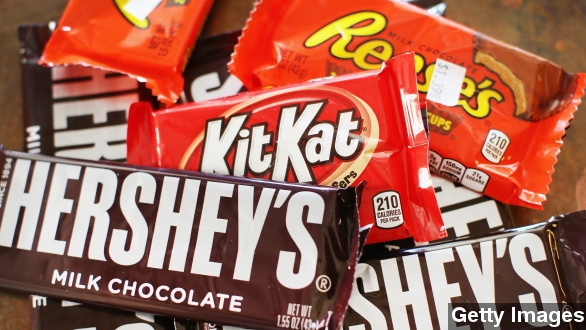Researchers found when sugary food was a reward, obese women weren't able to make the right decision or learn properly. (Via Getty Images)
So here's some background: Yale researchers tested 135 men and women, showing them "reward" cards and telling the participants they would be given whatever appeared on the card.
There was a pattern involved, and participants were asked to predict when a reward card would appear. (Via Current Biology)
Obese women didn't do well when the reward card involved food, overestimating how often chocolate or some other food item would appear. (Via Getty Images)
Note — it was just obese women — not thinner women and not men of any weight — who seemed to have what the researchers are calling "impaired associative learning."
The study's authors suggest: "Obesity may be linked to impaired reward-based associative learning and that this impairment may be specific to the food domain."
"Specific to the food domain" because — and here's the interesting part — researchers tried the reward pattern with money instead of food and found the same obese women who had trouble predicting food awards did just as well as everyone else when the payoff was money.
The Los Angeles Times' Melissa Healy anticipates the study "inspiring offensive commentary from misogynists and fat haters."
But in fact in all the coverage of the study no one really addresses the question — why obese women?
No one, that is, except the BBC, which nonetheless vaguely points to the possibility that obese women have "particular concerns about food or because they feel more unhappy or dissatisfied about their body image."
But this study is definitely not conclusive — and leaves some questions unanswered. To start — Is this a chicken-and-egg issue: Does obesity causes the learning impairment, or the other way around? You can find the study in the journal Current Biology.


